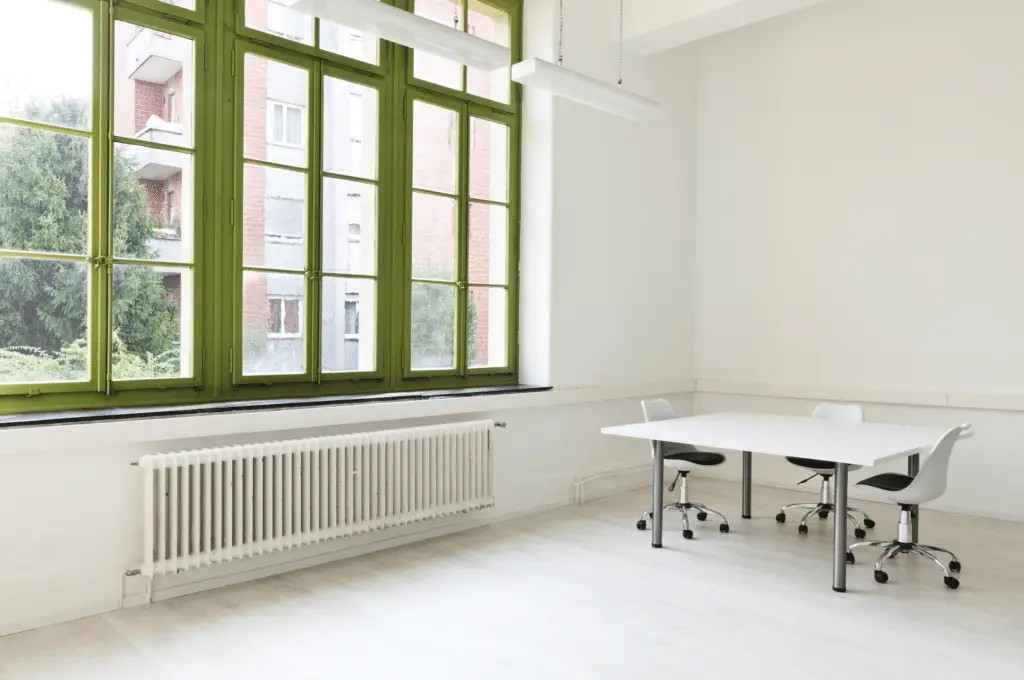
From hospitals and schools to offices and blocks of flats, a whole range of buildings rely on commercial boilers. But what exactly are these appliances, and how do they differ from domestic boilers? Keep reading for the answers to these questions, and for tips on how to choose the right commercial boiler for your organisation.
Commercial boilers explained
A commercial boiler is a system that provides heating and hot water to a non-domestic building. Usually, these appliances are pressurised systems that either burn fuel or use electricity in order to produce hot water or steam. This hot water or steam is then circulated around the building via a system of pipes and can be used as required to create a comfortable environment. It is common for these systems to use natural gas as fuel, but they can also burn fuel oil or use electricity resistant coils to generate heat.
When does a boiler become commercial?
If you’re wondering, when does a domestic boiler become commercial, the answer largely depends on size. Boiler size, or output, is measured in kilowatts (kW). Unsurprisingly, domestic boilers tend to have a smaller output than commercial appliances. In many cases, domestic boilers range in size from 24kW to 42kW, although they can be up to 70kW.
In general, appliances larger than this are classed as commercial boilers. These systems are suitable for more sizable premises, whether that’s an office, leisure centre, health centre, college, warehouse, factory or any other type of non-domestic building. Gas and oil-fired commercial boilers are often in the 250kW to 1,500kW range. This huge spread of output sizes helps to ensure that organisations are able to find appliances which meet their specific heating and hot water needs.
The sizing cut-offs between domestic and commercial boilers aren’t quite this straightforward however. Certain commercial boilers have an output of less than 70kW. For example, it is possible to get portable commercial electric boilers ranging from 15kW to 36kW. These compact appliances are a popular choice on construction sites, for example as an aid in the screed drying process. They can also be used in shops, garages, sports halls and a variety of other settings.
How to choose the right commercial boiler for your premises
With so many different types of commercial boiler available, it can be confusing deciding which to choose for your organisation. There are various issues that you should consider when selecting one of these appliances. Here are some of the most important:
Size
As mentioned previously, commercial boilers differ hugely in terms of size. So, when you’re considering your options, it’s important to have a clear understanding of the heating and hot water requirements of your premises. For example, how large is your building, how many radiators do you need to heat, and how many hot water outlets do you have? Getting a boiler with an appropriate output is critical.
Don’t worry if you’re unsure about your specific heating and hot water needs. You can arrange for an expert to come to your premises and carry out a site survey to ensure you select a boiler that matches your technical requirements.
Fuel type
You might also want to think carefully about the fuel type that your boiler will use. Popular options include natural gas and fuel oil, as well as electricity. However, there are also other less well-known options. One of these is hydrotreated vegetable oil (HVO). A form of renewable diesel, it is increasingly being used as an alternative to traditional heating oil. If you’re looking for a more environmentally friendly solution for your organisation, HVO is worth considering. As well as being sustainable, it is efficient to use and offers a high level of performance.
Energy efficiency
Heating and hot water might represent a significant ongoing cost for your organisation, so it pays to think carefully about energy efficiency when you’re looking for a commercial boiler. The good news is, there’s no shortage of highly efficient appliances to choose from. Just make sure that you look carefully into the efficiency information of different boilers before you make a final decision.
Getting a boiler that’s the right size also plays a big role here. You obviously need an appliance capable of meeting your heating and hot water needs, but you don’t want a system with too much redundant capacity as this could mean you end up paying more in fuel costs than you need to.
Support and maintenance
You no doubt want a heating and hot water system that you can rely on around the clock, and this means having a good maintenance and support agreement in place with the boiler supplier. So, when choosing an appliance, check the supplier’s maintenance, support and servicing policies.
For example, if you come to Ideal Heat Solutions for planned or emergency commercial boiler hire, you’ll benefit from remote monitoring technology that allows us to keep tabs on your appliance at all times. Our boilers come with unique BMS Trend technology, which enables us to monitor performance remotely. If we detect any issues, we can make minor adjustments without even needing to send an engineer to site, saving you disruption and inconvenience.